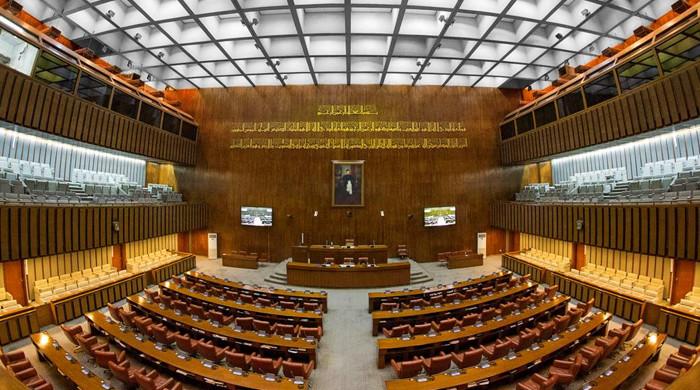Whistleblower Protection Bill Introduced in Senate
A legislative proposal aimed at creating a commission to safeguard and supervise whistleblowers was formally presented in the Senate on Friday.
According to the provisions outlined in the bill, any individual, institution, or agency has the right to provide information to the commission. This is conditional on the whistleblower affirming the accuracy of the details shared.
Submissions must be documented in writing, accompanied by supporting evidence and pertinent materials. However, the commission will not act on information if a whistleblower chooses to hide their identity or provides a fabricated one.
The bill specifies exclusions, stating that information perceived as detrimental to Pakistan’s security, sovereign rights, strategic objectives, or economic well-being will not be considered.
Similarly, information concerning foreign affairs, content restricted by the Official Secrets Act, encouragement of illegal activities, records involving government ministers and secretaries, or discussions within the cabinet and its respective committees will be deemed unacceptable.
Moreover, information that is legally restricted, contravenes court orders, or infringes on the privileges of parliament or assemblies will not be taken into account.
The commission is also set to dismiss trade secrets, private information, confidential foreign communications, or any data that could impede current investigations or judicial processes against a defendant.
Details that might jeopardize an individual’s safety, compromise the confidentiality of law enforcement, lack relevance to public interest, or encroach upon personal privacy will face similar rejection.
The commission will be empowered to call upon any individual for examination under oath, scrutinize records and evidence, and assess documents and testimonies.
The commission can also seek access to official records. A designated officer within the commission will be authorized to solicit complete cooperation and procure documents from governmental bodies, regulators, banks, and financial institutions.
The officer is required to evaluate the information provided within a 60-day timeframe. Should further investigation be warranted, and if the matter suggests a potential criminal offense, the commission is obligated to refer the case to the appropriate authority.
The legislative measure guarantees protection for whistleblowers from any form of reprisal. In the event that a whistleblower experiences harm, they are entitled to lodge a formal complaint with the commission, which will subsequently forward it to the relevant authority.
Should the information prove accurate, the whistleblower will be entitled to a reward equivalent to 20% of the recovered amount, along with official recognition. In instances involving multiple whistleblowers, the reward will be divided equally among them.
Furnishing false information will result in a penalty of up to two years of imprisonment and a financial penalty of up to Rs200,000, payable to the individual aggrieved by the misinformation.
A whistleblower’s identifying information will be held in strict confidence. Disclosure of their identity will result in a fine of Rs500,000 and a prison sentence of up to two years.



Comments (0)
No comments yet. Be the first to comment!
Leave a Comment